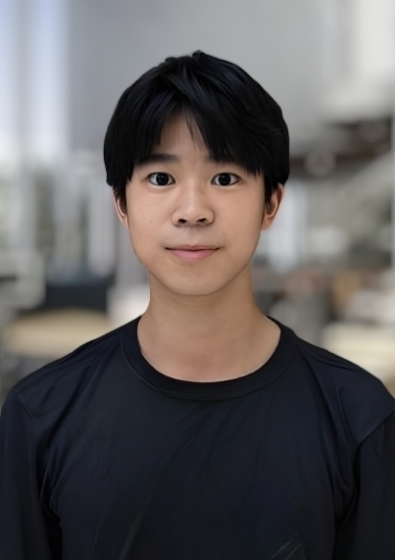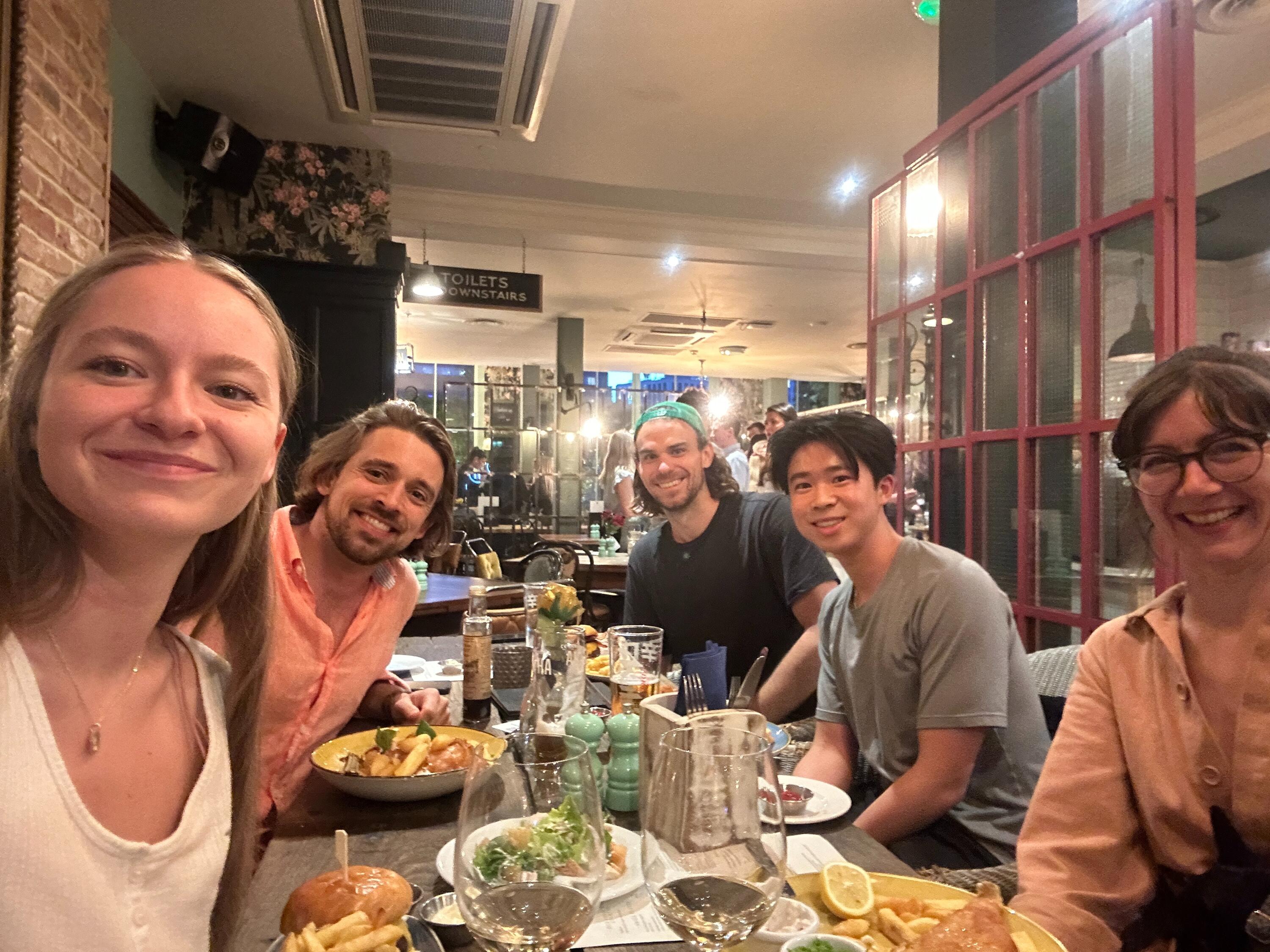Benjamin Ng (he/him), a second-year Software Engineering student, discusses his first work term in England, his passion for innovation and why he created Prep Trek, a nonprofit organization for incoming high school students.
Benjamin's co-op journey
First work term: In London, England, Benjamin worked as a full-stack software developer for Syndi Health, a technology startup that facilitates digital health services for employees.
Q&A with Benjamin
Why did you choose to begin your co-op journey with an international work term?
“There were three reasons. First, given that it was my first co-op, I wanted to explore something new and step outside of my comfort zone. Second, London is one of the central hubs for entrepreneurship. As an aspiring entrepreneur, I wanted to be engrossed in that kind of environment. Third, I’m particularly interested in health-technology, so being able to work for a company—especially a startup— in that field really stood out to me at the time.”
 What have you learned from your first work term?
What have you learned from your first work term?
“From working in a startup environment, I learned that I enjoy the product creation process, from ideating to seeing fully fledged products and features. Working in a startup taught me a lot about the iterative process of software development and gave me a better understanding what it means to be work in the industry.”
“For example, at Syndi I implemented a ChatGPT search bar feature which streamlines the process of users finding health resources for their specific needs by leveraging natural language processing and the OpenAI API. The opportunity to create these types of features from scratch, that have an impact on real people is fascinating and meaningful to me.”
“I was also able to interact with other parts of a startup outside of software development by working with the chief executive officer (CEO) and the marketing team to understand the intuition behind business decisions and strategies.”
“Travelling through Europe was also an eye-opening experience. It was the first time that I've visited Europe. Going to places like Italy, Norway, France and Wales gave me a new perspective on how people live their everyday lives and the similarities between the way we both live.”
 You were one of the finalists in the “Where in the World?!” photo contest. Why did you choose to submit this picture?
You were one of the finalists in the “Where in the World?!” photo contest. Why did you choose to submit this picture?
“The photo I submitted was taken during the first month I was in London from the top deck of the double decker bus. I was sitting at the very front of the bus when I saw another coming towards me with ‘Waterloo’ on it. Being a University of Waterloo student, the parallels between the UK and Canada stood out to me. It reminded me of the fact that there are some similarities between both places, despite being so far apart.”
What is unique about software engineering?
“I think the iterative process of development in software engineering really stands out to me. Compared to other engineering disciplines, software is constantly evolving. Even established products are constantly adjusting. For example, in mechanical or architectural engineering once you create your final product you may only make minor tweaks. But for software, the fact that there are always new technologies on the horizon means that there are constantly new ways to innovate and add onto existing products.”
 Since software is constantly evolving, how do you stay up to date with new technologies and processes?
Since software is constantly evolving, how do you stay up to date with new technologies and processes?
“I think it can be overwhelming when there's so many things coming out. But at the same time, it's something to look forward to. Every day you can read about some new technology or create and test new technology yourself. On the weekends during my co-op term, I would read about an interesting technology and spend a few hours trying to build something for the company. A lot of times it didn’t work out, but just having the ability to try out new things is super interesting and unique to software engineering.”
Why did you create Prep Trek?
“I originally created Prep Trek because going into high school, I remember feeling super overwhelmed with the multitude of things I had to juggle. Whether it was extracurricular activities, applications for universities or academics, all those pressures made me feel lost. All I wanted was some sort of personalized mentorship.”
“Realizing that this is an issue that a lot of students face, I created Prep Trek with the goal of increasing the number of unique perspectives available to junior high students transitioning into high school. The ultimate goal was to connect students with mentors that had similar ambitions and career paths. From there, Prep Trek morphed into panel discussions, events and one-on-one mentorship programs.”
How do you plan to innovate Prep Trek in the future?
“I’ve been working on a centralized web platform which facilitates events for schools. It bridges the gap between administrators, student leaders and the student community to make holding and attending events easier.”
“When I was in high school, I realized that there were a lot of inefficiencies in the way that events were facilitated. For example, if you're trying to hold an event, you have to create posters and promote it on the public announcement system, but first you have to talk with your teachers or administrators. All of these processes stop students from hosting events. This means that students don't have as many opportunities to connect with each other. So, bridging that gap with software is what I've been working on.”
 What advice would you offer to a student about to enter their first work term?
What advice would you offer to a student about to enter their first work term?
“The main thing I learned was that you should be treating co-op terms as learning opportunities rather than stepping stones to better opportunities. At no other point in your career will you have the opportunity to switch between jobs every four months, so you shouldn't be afraid to try different things outside of your comfort zone.”
“The second piece of advice I would give is that you should create your own opportunities during co-op. If you're passionate about a specific field or want to make a difference in a particular sector, you should reach out and try and make those opportunities for yourself.”
“Personally, I never would have expected to be working in London, especially on a co-op term. Going outside of my comfort zone led to such a meaningful experience and taught me a lot about creating my own opportunities.”
Where do you see yourself in the future?
“For my next co-ops, my goal is to learn as much as I can and try different things. Since software is such a broad field, I want to learn about as many areas as I can. In my next co-op, I'm going to be working in embedded programming, which should be interesting.”
“Doing another international co-op is another goal. Going to different countries was super eye opening for me and I think there’s a huge difference between living in a country rather than visiting as a tourist. There are also a number of opportunities outside of Canada to explore.”





